- News
- Reviews
- Bikes
- Accessories
- Accessories - misc
- Computer mounts
- Bags
- Bar ends
- Bike bags & cases
- Bottle cages
- Bottles
- Cameras
- Car racks
- Child seats
- Computers
- Glasses
- GPS units
- Helmets
- Lights - front
- Lights - rear
- Lights - sets
- Locks
- Mirrors
- Mudguards
- Racks
- Pumps & CO2 inflators
- Puncture kits
- Reflectives
- Smart watches
- Stands and racks
- Trailers
- Clothing
- Components
- Bar tape & grips
- Bottom brackets
- Brake & gear cables
- Brake & STI levers
- Brake pads & spares
- Brakes
- Cassettes & freewheels
- Chains
- Chainsets & chainrings
- Derailleurs - front
- Derailleurs - rear
- Forks
- Gear levers & shifters
- Groupsets
- Handlebars & extensions
- Headsets
- Hubs
- Inner tubes
- Pedals
- Quick releases & skewers
- Saddles
- Seatposts
- Stems
- Wheels
- Tyres
- Health, fitness and nutrition
- Tools and workshop
- Miscellaneous
- Buyers Guides
- Features
- Forum
- Recommends
- Podcast
feature
How to boost your cycling fitness when you’re aged over 50
Getting fit – and staying fit – changes as we get older, but whether you’re an experienced cyclist or you’re just getting into riding, here’s how to get the most from your time in the saddle.
We know that the vast majority of road.cc readers aged over 50 aren’t going to race, but most of us want to maximise our fitness. We’re unlikely to spend endless hours religiously following a structured training plan but we want to be lean and healthy and hold our own on a group ride. Most of us have a competitive streak hiding inside, even if we just want to beat our mates up the biggest local climb or improve on last week’s time around a favourite loop.
What should we do to make the most of our riding as we get older while still enjoying it? We spoke to super-experienced coach Joe Beer to find out.
It’s all about the intensity
How hard should you ride? Most of us only have limited training time and can only grab a few hours on the bike every week – especially during the winter when days are shorter and some riding is likely to be on the indoor trainer – so high intensity will make up for a lack of duration, right? Joe Beer believes the exact opposite.
“Whether you look at [marathon runner] Kipchoge, relatively new papers on elite runners, particular triathletes or somebody from one of the pro cycling teams, the data shows that way over 80% of their week is easy. Okay, it might not be what other people call easy, but it is easy by their standards. You have to teach your body to stay in zone one.”
> Not reached your 50s yet? Here's how to maximise fitness at 40
Joe isn’t referring to a zone one heart rate here; he’s talking about lactate zone one (LT1) – the lowest intensity at which there’s a sustained increase in blood lactate concentration above resting values, but we don’t need to get too technical about it.
“If you’re riding your bike with your mouth open and you puff and pant, you are riding too hard to call that ride steady or easy,” says Joe. “If you forget heart rate monitors and power meters, that means at the simplest level you should be able to close your mouth and breathe through your nose. This will keep you in the aerobic zone.
That’s going to come as a surprise to many people who think that digging deep is where it’s at. ‘No pain, no gain’ and all that.
“It can be frustrating and slow but there’s no way around this. People who train harder most of the time are sometimes going around in circles for years. They ask, ‘what am I doing wrong?’ I slow them down and they get fitter.
“You’ve got to train at your own level. Maybe you can go out and be competitive with your mates once or twice a week but you have to keep developing that base and the simplest way is to breathe through your nose just to double-check that you aren’t pushing yourself too hard.
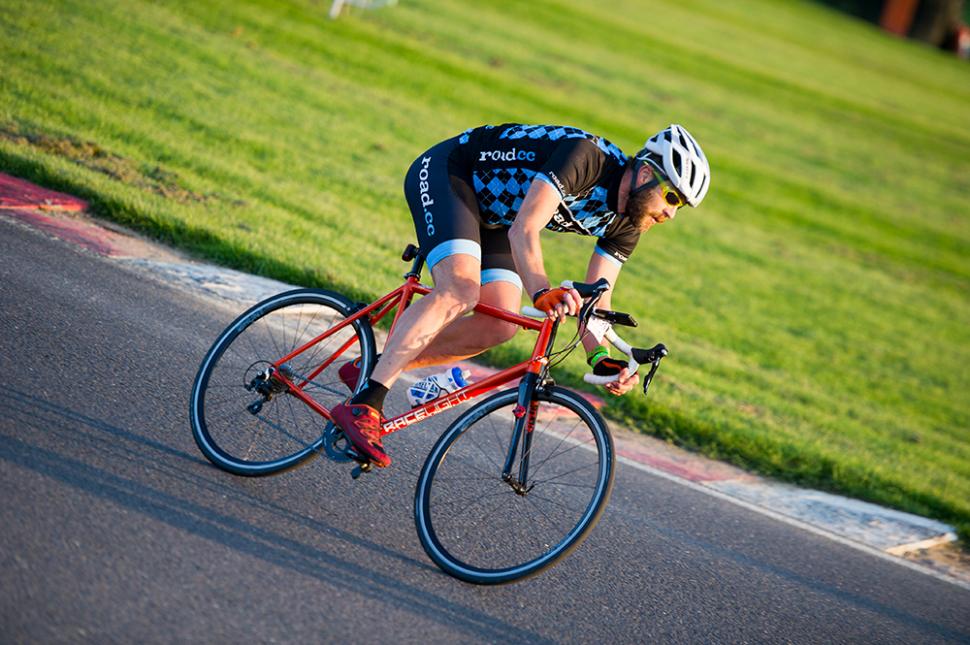 “You have to put time in the bank. Everyone who has decided to do just HIIT [high-intensity interval training] three times a week has unfortunately found out the hard way that there is no get-fit-quick solution. If you have six hours of activity a week, say, nearly five of those hours are going to be easy.”
“You have to put time in the bank. Everyone who has decided to do just HIIT [high-intensity interval training] three times a week has unfortunately found out the hard way that there is no get-fit-quick solution. If you have six hours of activity a week, say, nearly five of those hours are going to be easy.”
There’s still some room in there for higher-intensity riding, then? We can go out and hit it hard once in a while?
“When you’re not riding easy, it’s probably because the hills or your ego push you that little bit harder at times,” says Joe. “Somebody might think they need to be doing minute-on, minute-off intervals, but you need to have the base training to absorb that and be healthy enough to keep it going.
“Most of us like to push ourselves, but the evidence says that you need to slow yourself down to get fitter from the bottom up first. You can’t fake the speed camera of the human cell. It will catch you if you try to push too hard. So what do you do? You just ease off and take your time.
“All of this is true whatever your age, but as you get older, you can’t fudge it, particularly if you’ve not worked on your base much in the past. You have to be realistic about whether you can sustain what you’re doing for the weeks and months ahead. We need to be consistent, and that means we can’t just hammer ourselves and wait till we go pop.”
Phil Cavell also argued that most of us train too hard and need to back off in order to reach our fitness potential in an extract from his book, The Midlife Cyclist, that we published on road.cc a couple of years ago.
Make time for recovery
Anyone who has ever tried to gain fitness knows the importance of recovery. When you exercise, you work your body. After exercise, your body recovers and your fitness increases to its original level and then, if you get things right, it’ll adapt to a higher level of fitness. That’s essentially how training works, as long as you recover sufficiently to make those gains.
As we get older, though, our bodies tend to become less efficient at recovering. So how much recovery do we need?
“You need to judge your recovery according to your personal circumstances,” says Joe Beer. “Someone who is new to cycling is going to take longer to recover from a 90-minute ride than somebody who has done 90 minutes 500 times before in their life.
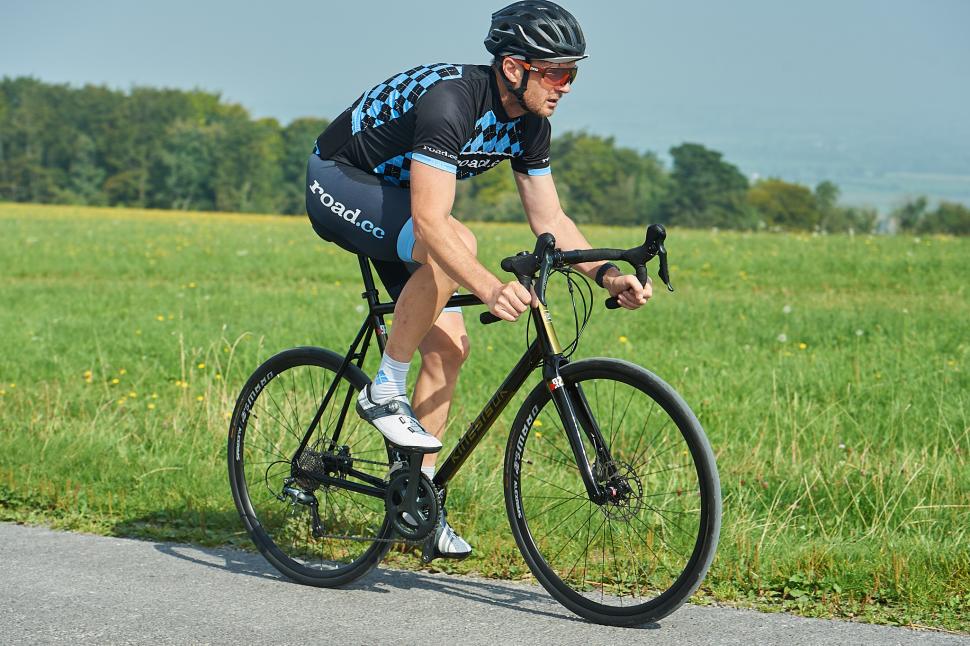 “Someone who goes out and does two hours quite hard on a Saturday morning, say, might take three days to recover. Somebody in that same group who has more base fitness might not need half the time. Their fitness might mean they’ve not had to work as hard on the ride – they’ve not had to burn as many matches – and they’ll recover quicker.”
“Someone who goes out and does two hours quite hard on a Saturday morning, say, might take three days to recover. Somebody in that same group who has more base fitness might not need half the time. Their fitness might mean they’ve not had to work as hard on the ride – they’ve not had to burn as many matches – and they’ll recover quicker.”
How do we know when we’re good to go again? That’s the tricky bit.
“If you’re getting ill more than about twice each winter or losing motivation regularly, those are signs that you’re not recovering properly,” says Joe.
“If you don’t see your heart rate dropping over time for the same effort, your sleep getting better – or at least not getting worse – or your body responding positively in some way, the problem probably isn’t that you’re not training hard enough; it’s more likely that you’re going a little bit too hard too often and should therefore ease off.
“Let your body get used to consistency. How do you recover better? You get more consistent, but you don't get more consistent at the hard work; you get more consistent at the easy work.”
Don’t skip the strength work
Most coaches agree that strength training becomes even more important as we get older, both to combat sarcopenia – the age-related loss of muscle mass and strength – and the loss of bone density. Cycling is great for many aspects of fitness but maintaining bone density isn’t among them, so you need to do something to put that straight.
> Cycling can make your bones brittle; here's how to stop it
“Once you hit your 50s, definitely in your 60s and 70s, you get this gradual lowering of muscle mass,” says Joe. “Most of us don’t do physical work; we don’t lift things often; we tap keyboards, and that isn’t putting much stress through the body, so we need to simulate some of that. Cyclists sometimes have very little upper body strength, especially as they get older, but it’s important for your holistic long-term lifestyle.”
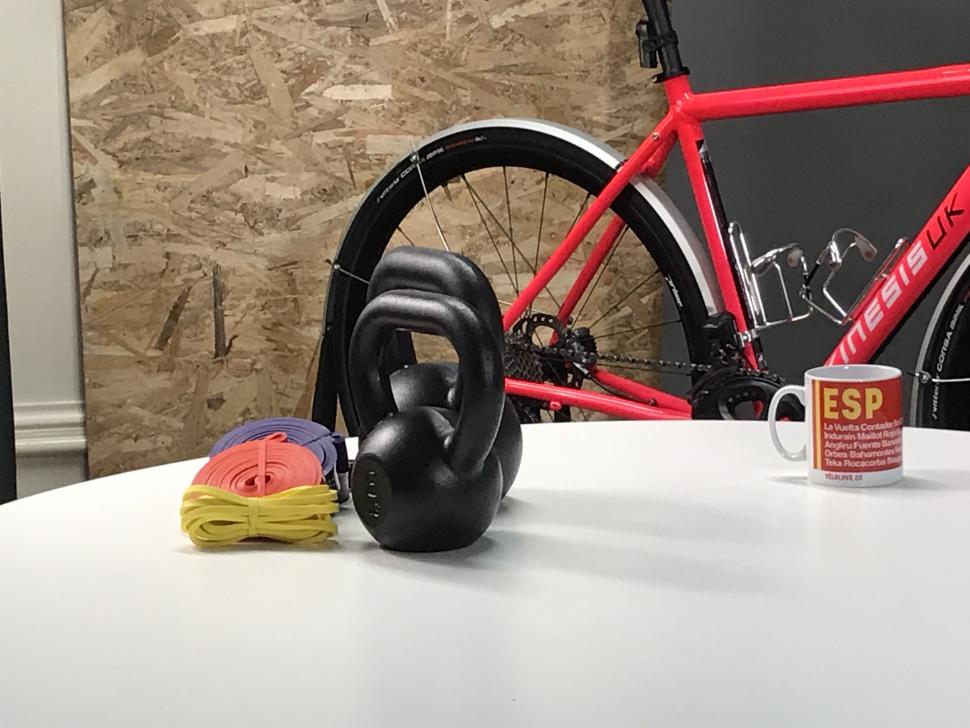 We don’t all need to hit the gym three times a week and get ripped, though.
We don’t all need to hit the gym three times a week and get ripped, though.
“You can use simple weights at home and do bodyweight work,” says Joe. “As a cyclist, your legs are probably strong, although they may still need additional strength work. I just have a 40/50kg barbell around the house. I might have a spare 20 minutes to do some strength work. Resistance training should be dovetailed in when you've got a bit of time – not instead of going outdoors and riding when it’s sunny.
“Rather than going hard on the bike, this is the time when you should make the effort because you want to stimulate the muscle for short periods, make it feel stronger and keep it there. If you’re not already doing strength work, then even the tiniest bit of lifting some dumbbells will make a difference. Build up over time.
“Most people aren’t especially session-focused when they’re exercising to be fit and not fat, but strength work does stimulate the metabolism and will help avoid overuse injuries.”
There’s no one-size-fits-all approach to strength training. A mesomorph – a person who is naturally muscular – might not need to do as much as an ectomorph – someone who carries little muscle. When it comes to muscle as you age, though, if you don’t use it, you’ll lose it.
If you’re looking for strength training ideas, you’re in luck. We have a feature and video that’s perfect for you…
> Strength training for cyclists: how to make your routine cycling-specific
Stretch for success!
Okay, so you’re working on stamina on the bike and strength through resistance training; what about suppleness? That can often head south if we neglect stretching as we get older.
“It's not that you have to be a gymnast or contortionist; you’ve just got to combat inflexibility,” says Joe. “If you're into cardio and riding your bike, you might not want to set time aside for flexibility work – you might not naturally move towards it – but you should because you don't want to be inflexible and then find you’ve injured yourself by pushing a part of your body constantly in one range of movement.
“Working on your flexibility might also help you keep up with your mate on the bike in a year or five years’ time because you’re not going to be the one who can barely bend their back or reach their rear pocket for food.
There are tangible benefits to the cyclist in setting space aside for stretching, then. How do we go about it? We have a (very old) Yoga for Cyclists series that you can follow here on road.cc.
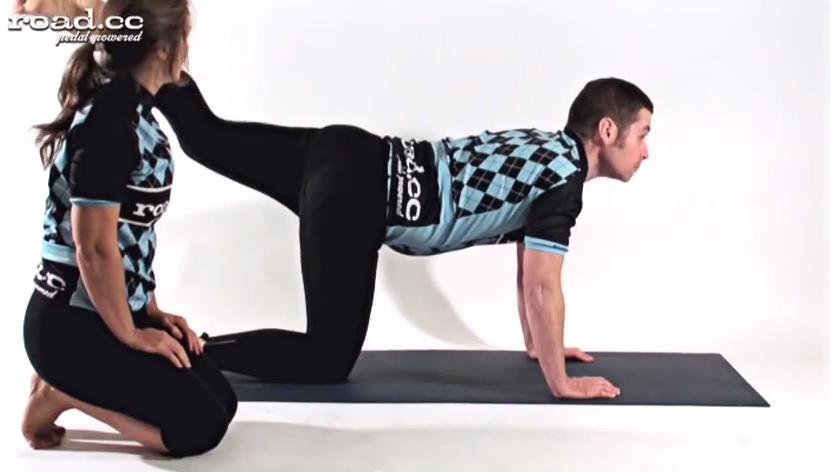 “You can find plenty of things like Pilates and yoga to follow on YouTube,” says Joe. “If you don’t like doing that, get a mate to come along to a Pilates class with you because you have to enjoy it or you won’t be doing it for long.
“You can find plenty of things like Pilates and yoga to follow on YouTube,” says Joe. “If you don’t like doing that, get a mate to come along to a Pilates class with you because you have to enjoy it or you won’t be doing it for long.
“People really gain from things like Pilates. Get in that class and tell me in six months that you’ve not benefited from it. The competitive part of you might think that it’s not worth it, that you need to get in another night ride or interval set, but we’re all very good at working to our strengths.
“Chances are that you’re not doing much suppleness work because it’s not your chosen thing, so add some in and make yourself more of a rounded athlete. If you want to be totally holistic, go and see somebody for massage and a chiropractor to get the balance absolutely right.”
Keep an eye on your diet
Ah, diet! There’s so much information out there, some of it contradictory. Okay, we all know that necking fast food and loads of alcohol isn’t going to do anyone much good, but what guidelines should we follow to stay in shape and maximise our bike fitness as we age?
“I think everyone realises as they get older that little things start to make a big impact,” says Joe. “If you overeat certain foods or have a diet that’s not very balanced, you can’t just ride it off, so you need to develop good habits. Yes, you burn calories by cycling, but they can quickly be ingested if all you do is eat cake and drink beer. That might sound like a wonderful lifestyle but you’re not going to be as lean as you want to be, and you’re not going to recover as well as you could.”
 “Most people who are overweight are probably just eating the wrong foods. There’s great research that says overprocessed foods can change your brain. You can’t ride them off; you’ll get fatter and, unfortunately, you’ll get more addicted to them and find it really difficult to eat clean.”
“Most people who are overweight are probably just eating the wrong foods. There’s great research that says overprocessed foods can change your brain. You can’t ride them off; you’ll get fatter and, unfortunately, you’ll get more addicted to them and find it really difficult to eat clean.”
Eating clean? What does that mean in practice?
“You don't have to be a monk. You can eat cake… but not more than, you know, oats or whatever! It's a difficult balancing act not to be too serious about all of this and, at the same time, to eat healthily. There’s a case for listening to your body and eating foods that work for you. We need to be as varied as possible and cutting out entire food groups probably isn’t good for us.
“You can do a very simple kind of self-science. If I eat it and feel good, that’s probably not a bad food for me. If I eat it and feel tired or lacking energy, or if I start eating and just have to finish the entire loaf of bread or the complete tub of Ben and Jerry’s, that’s not good. This isn't about your head, it’s about the actual chemical reactions that are going on.
“You can do your own little experiments. Do things work for you or do they make you tired and gain weight?
“Try a certain breakfast and see how you feel 90 minutes later. Are you ready for riding or tired and want more of what you just ate? Be sure not to confuse your brain with a ton of caffeine. Just eat foods and see if they feel unnoticed or whether they spark fatigue or a more-ish pig-out frenzy.”
You might be fine with water on short rides, but you’ll need to fuel longer stints in the saddle.
“Most of us aren’t super-high-level professional athletes who need to be chugging 100-120g of carbohydrate an hour, but you do need to look at things that help provide energy on longer rides,” says Joe.
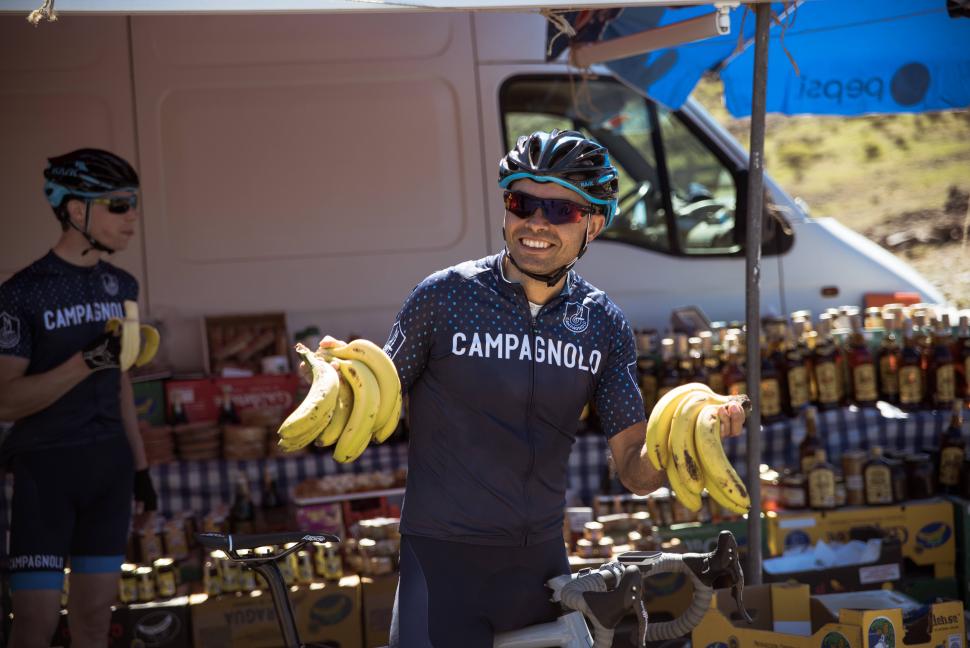
> How to eat right for sportives and long rides
“You might not want glucose drinks and prefer bananas, dried fruit, and nuts. That’s fine. That’ll work. For most rides below 90 minutes, a snack or meal two hours before should suffice. Beyond two hours, its all about trickle-feeding foods that give us energy and keep us mentally focused.”
Getting the balance right
There’s loads to think about when it comes to fitness as we age, so it becomes a matter of getting the balance right.
“You’ve got three pillars to your fitness: strength, suppleness and stamina,” says Joe. “Get a piece of paper and list what you do, your weaknesses, and the habits you need to improve.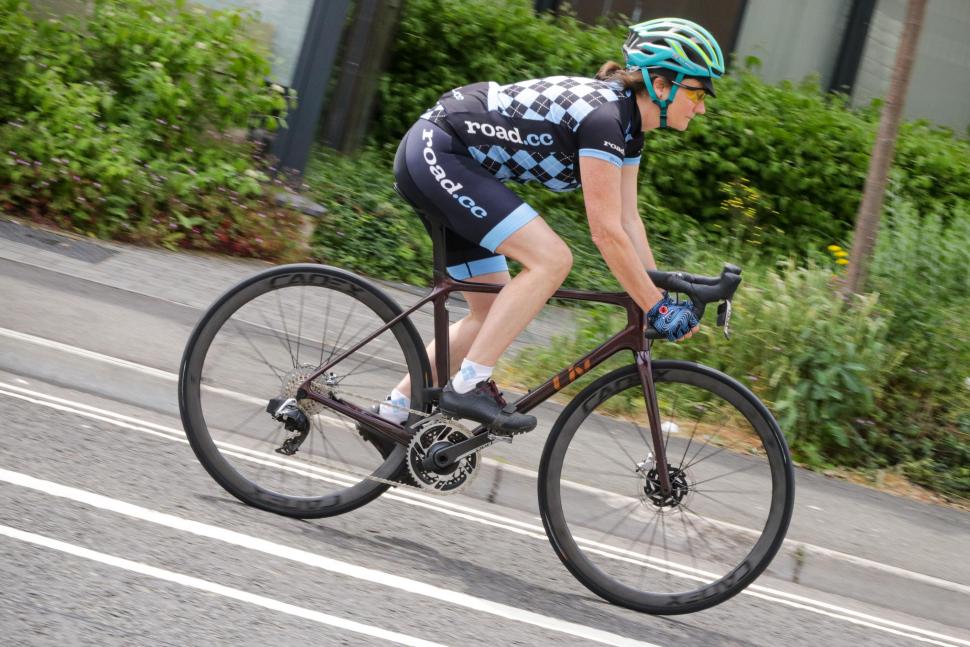
“You’re probably riding already for stamina. You might be doing it a little bit too hard, but you're probably doing that. If you’re not doing anything for suppleness, start there and put some time in – once a week, say.
“Then add strength work. It can be at home or in the gym, but make sure it’s something you’ll carry on doing – you can’t do a free month at the gym and think that’s going to be it.
“Finally, think about stamina-based work, but don’t try to cut corners by going out and riding ever faster. We know that doesn’t work. Just enjoy riding. If you enjoy it, you'll come back for more.”
Mat has been in cycling media since 1996, on titles including BikeRadar, Total Bike, Total Mountain Bike, What Mountain Bike and Mountain Biking UK, and he has been editor of 220 Triathlon and Cycling Plus. Mat has been road.cc technical editor for over a decade, testing bikes, fettling the latest kit, and trying out the most up-to-the-minute clothing. He has won his category in Ironman UK 70.3 and finished on the podium in both marathons he has run. Mat is a Cambridge graduate who did a post-grad in magazine journalism, and he is a winner of the Cycling Media Award for Specialist Online Writer. Now over 50, he's riding road and gravel bikes most days for fun and fitness rather than training for competitions.
Latest Comments
- stonojnr 2 hours 25 min ago
but thats the problem its should not, not must not. and drivers will always claim theyre allowed to overtake you.
- Krislord 4 hours 9 min ago
I've been really happy with my Rapha cycling stuff - mainly the cheaper end as core is more than sufficient. The colours recently have been very...
- David9694 4 hours 10 min ago
Frame built by my own fair hand, heavily supervised, at the former Downland Cycles a few years ago. Cobalt blue by Argos. ...
- check12 4 hours 23 min ago
when 3D arione plz
- mattw 4 hours 43 min ago
So - to something like a photog's mini reflector. I do enjoy working out the detail of what will be the best solution.
- john_smith 6 hours 12 min ago
I think the mass of the car can be treated as infinite, in the sense that the velocity of the car is not going to change much at all on impact....
- mattw 7 hours 1 min ago
Signs installed by Devizes Town Council. AFAIK they are not the Local Highways Authority, and have no authority to install such signs.
- jaymack 7 hours 13 min ago
Tom Allen? Please tell me you don't mean the comedian.
- David9694 10 hours 20 min ago
A flame thrower dog robot is something every cyclist needs.
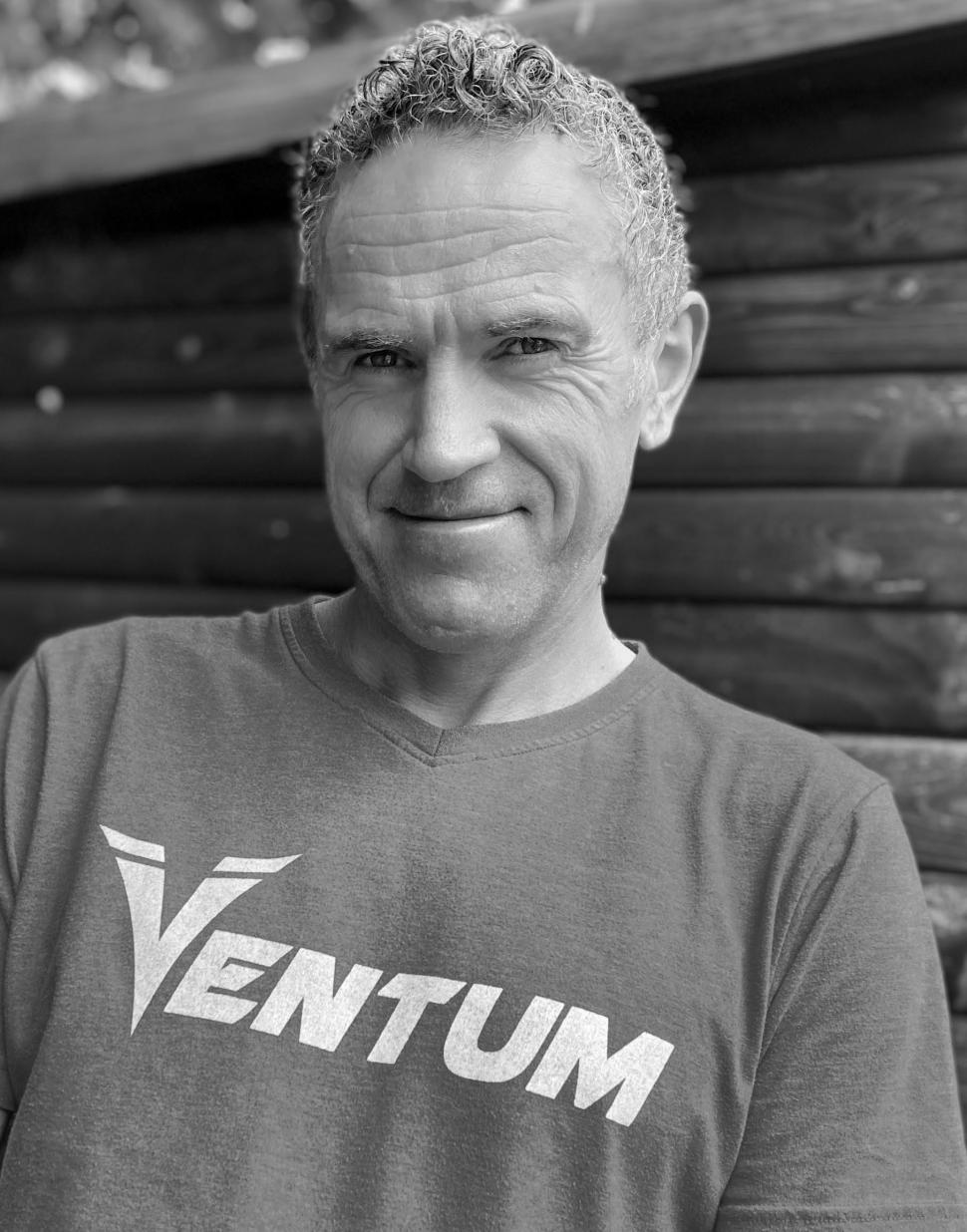
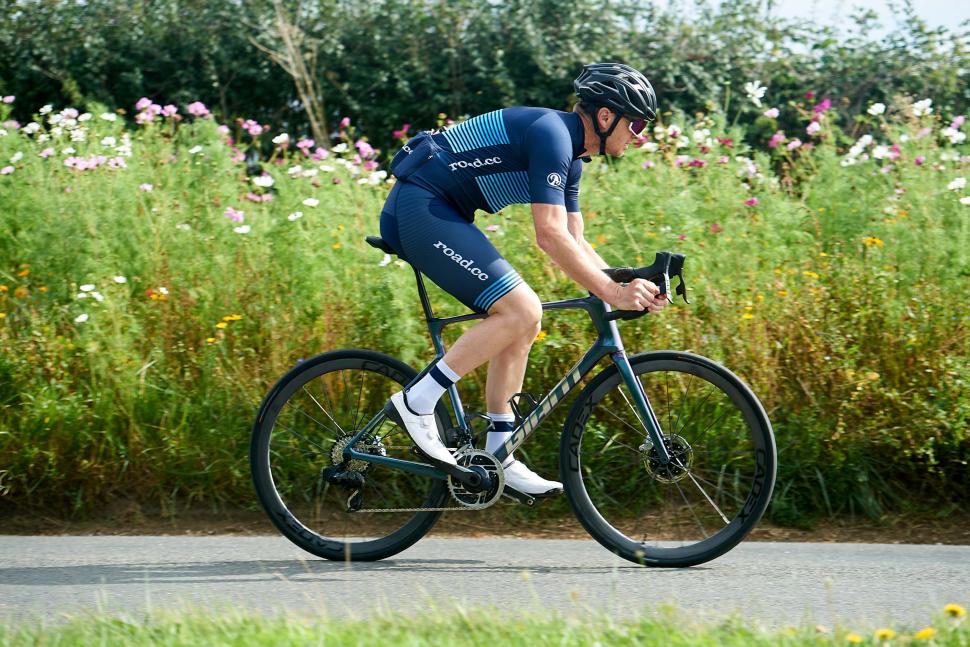
Add new comment
18 comments
I'm 68 and this article is clearly not for me. I cycle about 6,000 miles per year and have absolutely no training regime. Not having a car I cycle for transport as well as cycling for fun. I have nothing to prove, no one to beat, I just cycle. Try it. It's very relaxing and it keeps you fit.
I'm in the same situation -68 years. Ride my bikes for fun and to get some fresh air. This year about 4000km. Not more than 50 km's at a time. It's not training. It's just me. After a heart attack 2 years ago I bought a Apple watch and it says my yaerly average fitness is above average. So I'm happy.
I read the first section "It's all about the intensity" and it appeared to be describing transport cycling.
In which case I completely agree - just ride to work, the shops, the library, etc. instead of taking the car.
I remember reading 25/30 years ago that people who walk to work tend to have better cardiovascular fitness than people who visit a gym 2-3 times a week. At the time I'd changed job and with it had switched from walking to commuting by car - that's what inspired me to start cycling again in my 40s having not ridden a bike since my 20s. It has made a huge difference to my fitness.
Mat;
Thanks for an interesting and helpful post.
In my case am nearing 50 from India; 45mins weight training everyday and ride 25kms daily on entry level MTB(mostly roads as there are hardly any offroad spots left due to rampant Construction) now the problem here is Driving sense or Common sense or any respect concern for others on road is not our thing atall so cutting lanes, turning left-right without any indicators or warning, overspeeding is very very common everywhere and concern for cyclists is none. India accounts for close to 150K road deaths every year).
Looking for your advise;
Few days ago I met up with an nasty fall while riding as an picup truck all off a sudden decided to turn left from right lane with no signal; which made me crash into road barrier with my shoulder taking maximum impact; fortunatly giro helmet n handlebar mirrors to cycling gear saved me from any dislocation or fractures, doctor advised for no xray or ctscan.
But impact has surely stretched some of fibres/tendons in and around adjoining back n below collarbone area.
Its healing but will take few more days; as per doctor no weights for 4-6 weeks; cycling can be resumed in a week or so when pain absolutely goes away.
I have already purchased full body riding armour (i am not chicken hearted but despite India being very very hot Cannot take chance as Not sure will be lucky next time).
As an cycling expert; I am sure you may have witnessed others getting injured and again after recovery getting back to riding.
Whats your suggestion on How can i assess that I am ready for my routine of weight training alongwith cycling?
Thanks in Advance.
Sorry to hear of your fall. Building fitness is always about listening to your body - if the Doctor sayd 4-6 weeks then assess at that stage but when you do start ensure resistances are low and you go for good technique. In time you can add resistance and buidl the strength back. Happy Training.
I am 58 and got my first road bike when I was 40. I am at high school weight, in summer at least.
It’s all about the intensity: I always ride as hard as I can.
Make time for recovery: I cycle 75k every day.
Don’t skip the strength work: I only do one strength exercise (banded femur *rotatations*)
Cycling can make your bones brittle; here's how to stop it: I fall off my bike from time to time.
Stretch for success: I do high kicks.
Keep an eye on your diet: I don't eat carbs.
My blood presssure is low for a ten year old.
https://www.flickr.com/photos/nihonbunka/53321461621
No mention of the impact of the menopause. Article written for men much 🙄
Only had a narrow scope for such a small article, but I have asked to expaned it to include menopause and other common issues.
Good article. I'm 75 and have been cycling for a long time! I live in the French Pyrenees and any ride automatically includes some climbing (to get back home it's a 1km average 7% climb). I don't do enough strength training I note, but the mouth closed aspect is interesting and I'm glad to say that's my case.
Not for me
I am 72 and I found loss of fitness when going to a zone 2 heavy plan.
Articles like this remind me just how much I am not a sports cyclist...
I'm 58 and can't praise the benefits of Pilates too highly. Investing in one to one tuition was the key. Yes group classes with a friend are beneficial, not least because knowing that they're going prevents you backsliding but having that personal attention has made all the difference. Expensive? Certainly but the difference it's made to my overall health, strength and posture let alone my cycling has been marked. I now I beat my younger brother to the top of Kidds Hill by an even larger margin. But of course that's not the reason I do it...
I'm 52, have been cycling regularly for ten years now, and have definitely plateaued. I'm probably overtraining, but it's not like I'm trying to go out all the time, it's just that most of my cycling is for transport and I sort of want to get where I'm going. I ride most days, for most of my trips that are under ten miles one way.
The hardest part of taking it easy is that due to where my house and work are, almost every ride starts with a 200+ foot / 60+ metre climb in the first mile or two, and it just feels so slow trying to spin up. I don't have power or heart rate data, so I'm just going by feel.
If I were to make a concerted effort to stay in zone one for most of the week, can I start getting fitter again? I know from experience that it adds about ten minutes to my one-way work commute, from about 40 to 50 minutes, which isn't too bad. Here's my last few months of riding. Any long rides on weekends were probably with a group where I do have to work hard at times, but most of the Monday to Friday miles, and any weekend days under 20 miles, I'm just getting around town.
https://www.strava.com/athletes/3385711
Numbers on the table are in miles.
Oh, and I'm not overweight, do plenty of upper body strength training, and enough stretching to maintain the flexibility I have (which is merely okay, not great.)
Difficult to tell from mileage alone but you might feel that you've plateaued as most of your weeks seem the same. Go and have a look at the fit after 40 link in the above article as IMHO it gives some better advice than this.
I'm 53. My main advice is just to keep on cycling. (I do agree - though don't do enough - about strength training, though.)
Good article. Having recently turned 50 it is a subject I've been considering.
Worth having a watch of the interviews on GCN with Inigo San Millan about 'Zone 2'... resonates well with what is discussed in this article, though not limited to being useful for us oldies!
After a heart attack and triple bypass two years ago at the age of 62 i have changed my type of riding.
I still enjoy the road rides but have reduced the miles instead of slogging on for miles for the sake of doing high mileage.
Living near Hamsterley forest i now go up there twice a week. Riding the reds gets the adrenalin going,no traffic to worry about,and i love the peace and tranquility in the forest. Plus climbing on a 14kg bike with heavy wheels and tyres gives you a good workout.
I hate the winter so swimming twice a week when the weathers bad does get the lungs going.
Fitness for me isn't the be all and end all, it's a bonus from actually enjoying my bike rides and mixing it up a bit.